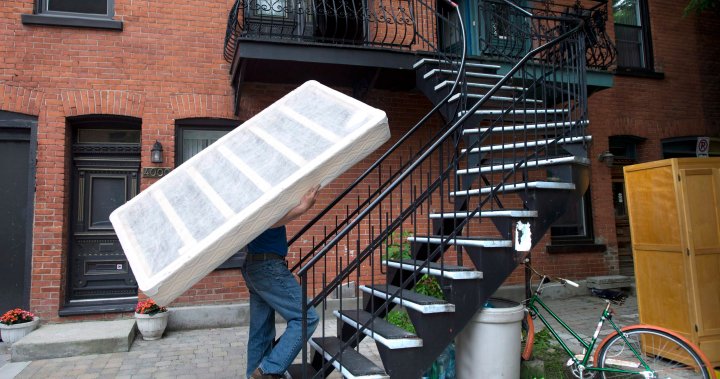Quebec’s housing minister, France-Élaine Duranceau, has introduced a bill that aims to impose a three-year moratorium on specific types of evictions and enhance protections for low-income senior renters. The proposed legislation would prevent landlords from evicting tenants for the purpose of subdividing, enlarging, or altering the use of a unit, with the exception of cases involving close family members. The moratorium would only be in effect for three years, but it could end early if the apartment vacancy rate in Quebec cities with over 10,000 residents reaches three percent.
Additionally, Duranceau’s bill seeks to extend Quebec’s current law against evicting low-income seniors to include individuals aged 65 and older, as opposed to the previous threshold of 70 years old. The legislation would also increase the income level at which a person becomes eligible for protection under this law. The government estimates that approximately 24,000 households would benefit from these new measures, which aim to provide increased security and stability for vulnerable tenants in the province.
The proposed changes come amidst concerns over housing affordability and increasing eviction rates in Quebec, particularly for vulnerable populations such as low-income seniors. By implementing a moratorium on certain types of evictions and expanding protections for older tenants, the government aims to address these pressing issues and ensure that individuals have access to safe and affordable housing. These measures are part of a broader effort to prioritize the needs of tenants and promote social equality in the province.
Duranceau’s bill reflects a commitment to protecting the rights and well-being of tenants, especially those who are most vulnerable to eviction and housing insecurity. By introducing safeguards against arbitrary evictions and increasing support for low-income senior renters, the government demonstrates its dedication to addressing systemic issues within the housing sector and creating a more equitable rental market in Quebec. These legislative changes highlight the importance of ensuring that all residents have access to safe and affordable housing, regardless of age or income level.
The government’s decision to extend protections to low-income seniors aged 65 and older represents a significant step forward in promoting housing security for this demographic. By raising the income eligibility threshold and expanding the scope of the existing law, Quebec aims to offer greater protection to older tenants who may be at higher risk of eviction due to financial constraints. These measures underscore the government’s commitment to addressing housing inequalities and supporting vulnerable populations within the province.
Overall, Duranceau’s bill signals a proactive approach to addressing the challenges faced by low-income renters and older tenants in Quebec. By enacting a moratorium on specific types of evictions and enhancing protections for vulnerable populations, the government demonstrates its commitment to fostering a fair and inclusive housing market. These legislative changes reflect a broader effort to prioritize social welfare and advocate for the rights of tenants, particularly those who are at greater risk of housing insecurity and eviction.













